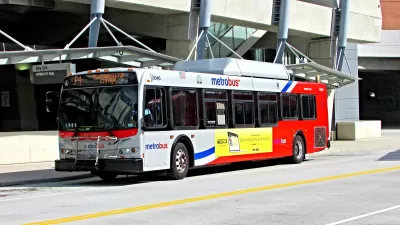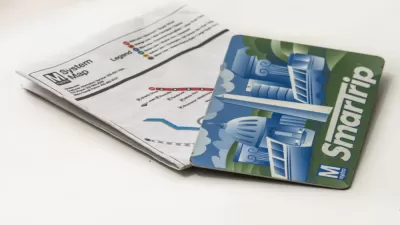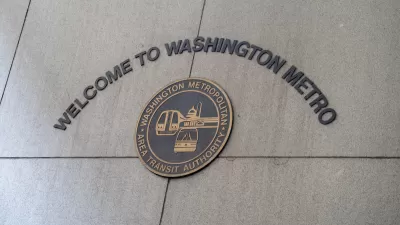The bus network redesign set to be unveiled next week is ambitious, but the agency says it doesn’t have the resources to implement it.

D.C. Metro will release its long-awaited bus system redesign plan next Monday, but how much of it will become reality? Jordan Pascale assesses the situation in DCist, writing that “Metro wants to make the entire bus network fast, reliable, and direct seven days a week, but it costs 35% more than current service levels across the region.”
Metro says the improvements could attract 40,000-45,000 new weekday riders – 40 million annually – and get people out of cars and into transit, avoiding 15,000 metric tons of greenhouse gases each year. The changes, planners say, will benefit those who need it most: Nearly six in ten Metrobus riders don’t own a car, half make under $30,000, and 84% are people of color.
The proposal would boost bus frequencies to 12 minutes or 20 minutes, run buses 24 hours a day, streamline routes to make them more direct, and create more connections between rail lines and regional employment centers. “It will also aim to connect missing links, like east-west routes between northern Red Line stations, helping riders avoid having to ride all the way downtown and back up.”
Unfortunately, “Metro says it doesn’t have the equipment, garage space, drivers, or money to run this level of service at the moment, but they say it’s important to start with lofty goals.” The agency also faces a $750 million budget shortfall.
FULL STORY: Metro Is Releasing Its Vision For A Redesigned Bus System Next Week. How Much Will Become A Reality?

Maui's Vacation Rental Debate Turns Ugly
Verbal attacks, misinformation campaigns and fistfights plague a high-stakes debate to convert thousands of vacation rentals into long-term housing.

Planetizen Federal Action Tracker
A weekly monitor of how Trump’s orders and actions are impacting planners and planning in America.

In Urban Planning, AI Prompting Could be the New Design Thinking
Creativity has long been key to great urban design. What if we see AI as our new creative partner?

King County Supportive Housing Program Offers Hope for Unhoused Residents
The county is taking a ‘Housing First’ approach that prioritizes getting people into housing, then offering wraparound supportive services.

Researchers Use AI to Get Clearer Picture of US Housing
Analysts are using artificial intelligence to supercharge their research by allowing them to comb through data faster. Though these AI tools can be error prone, they save time and housing researchers are optimistic about the future.

Making Shared Micromobility More Inclusive
Cities and shared mobility system operators can do more to include people with disabilities in planning and operations, per a new report.
Urban Design for Planners 1: Software Tools
This six-course series explores essential urban design concepts using open source software and equips planners with the tools they need to participate fully in the urban design process.
Planning for Universal Design
Learn the tools for implementing Universal Design in planning regulations.
planning NEXT
Appalachian Highlands Housing Partners
Mpact (founded as Rail~Volution)
City of Camden Redevelopment Agency
City of Astoria
City of Portland
City of Laramie





























